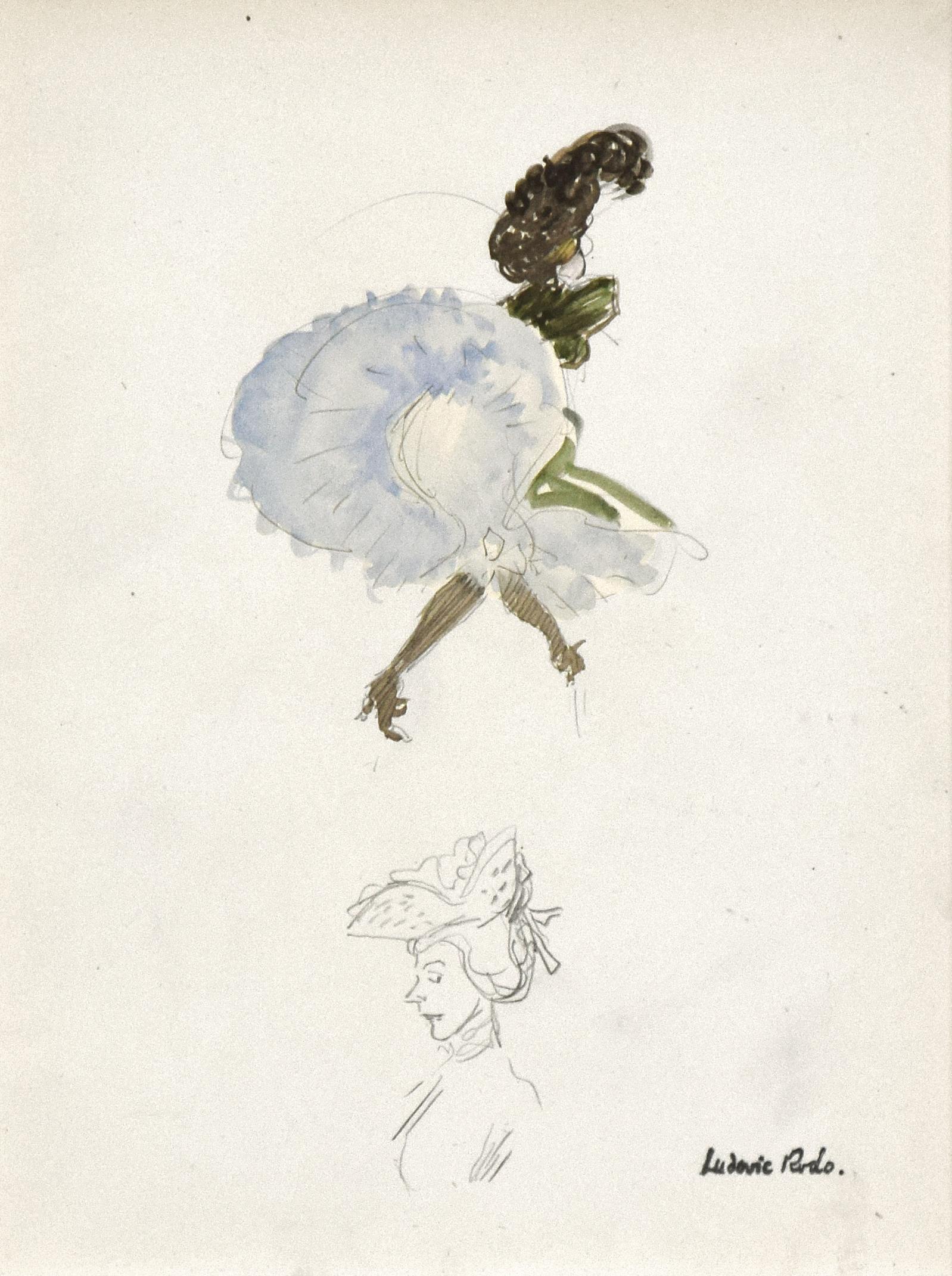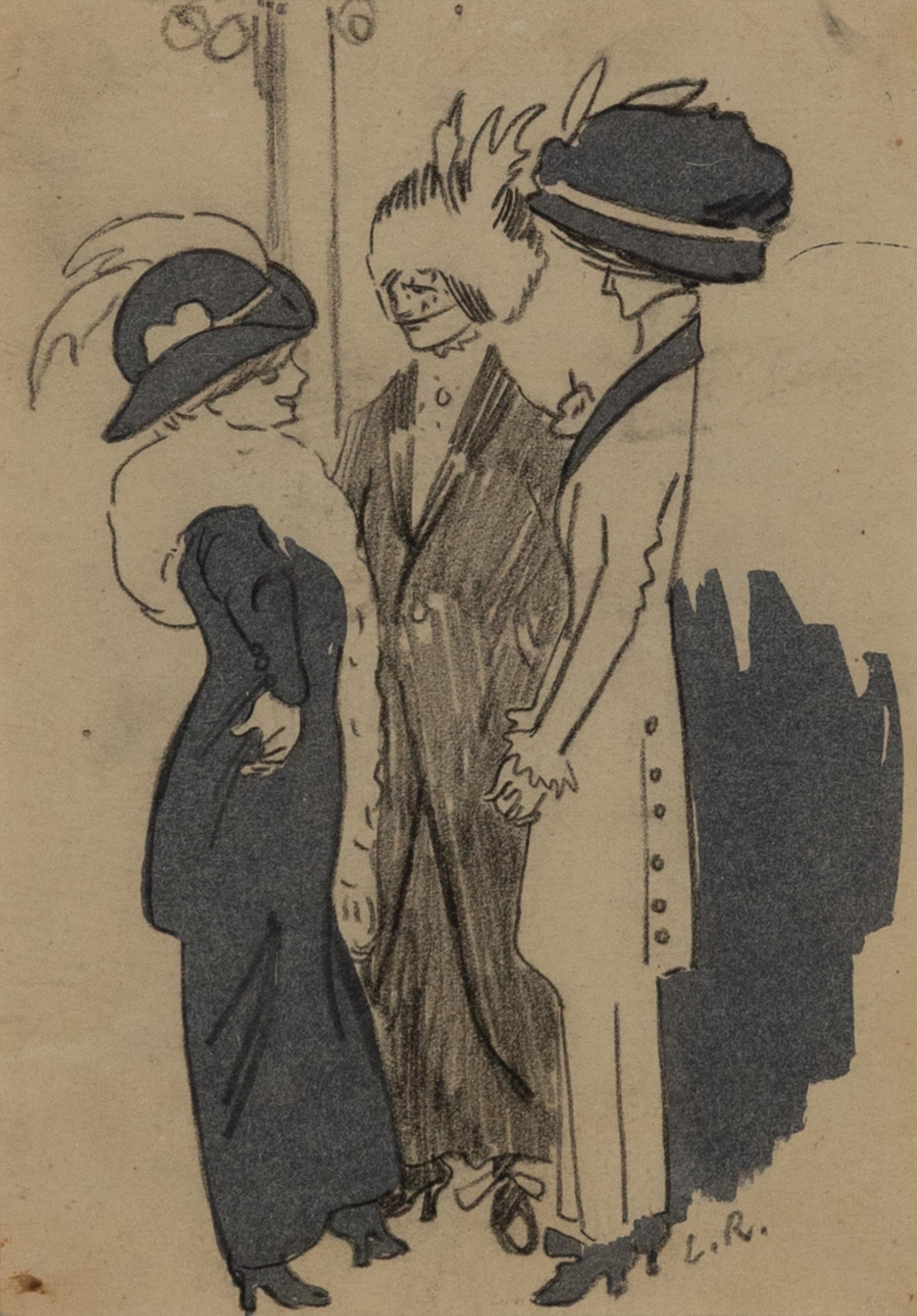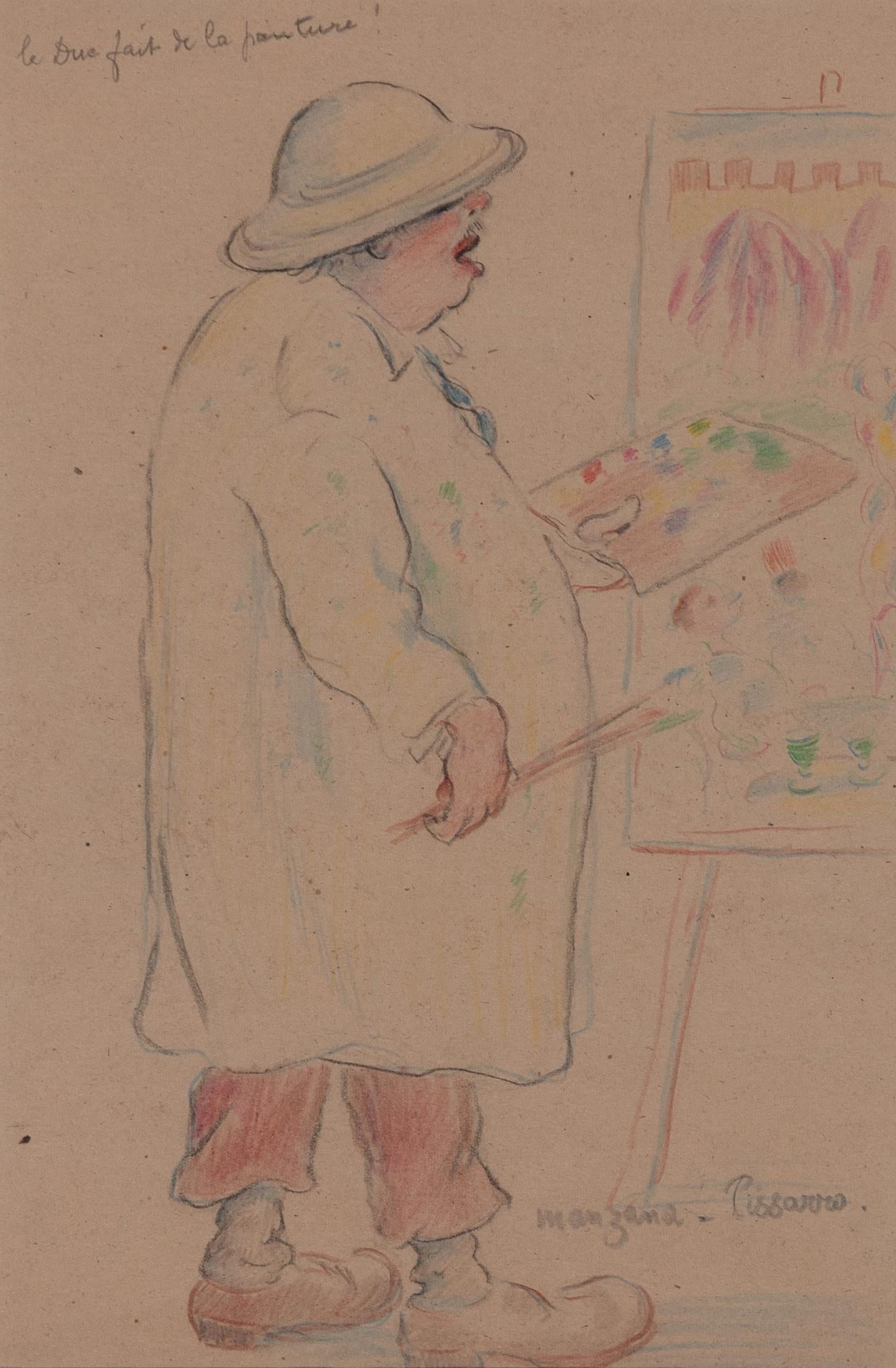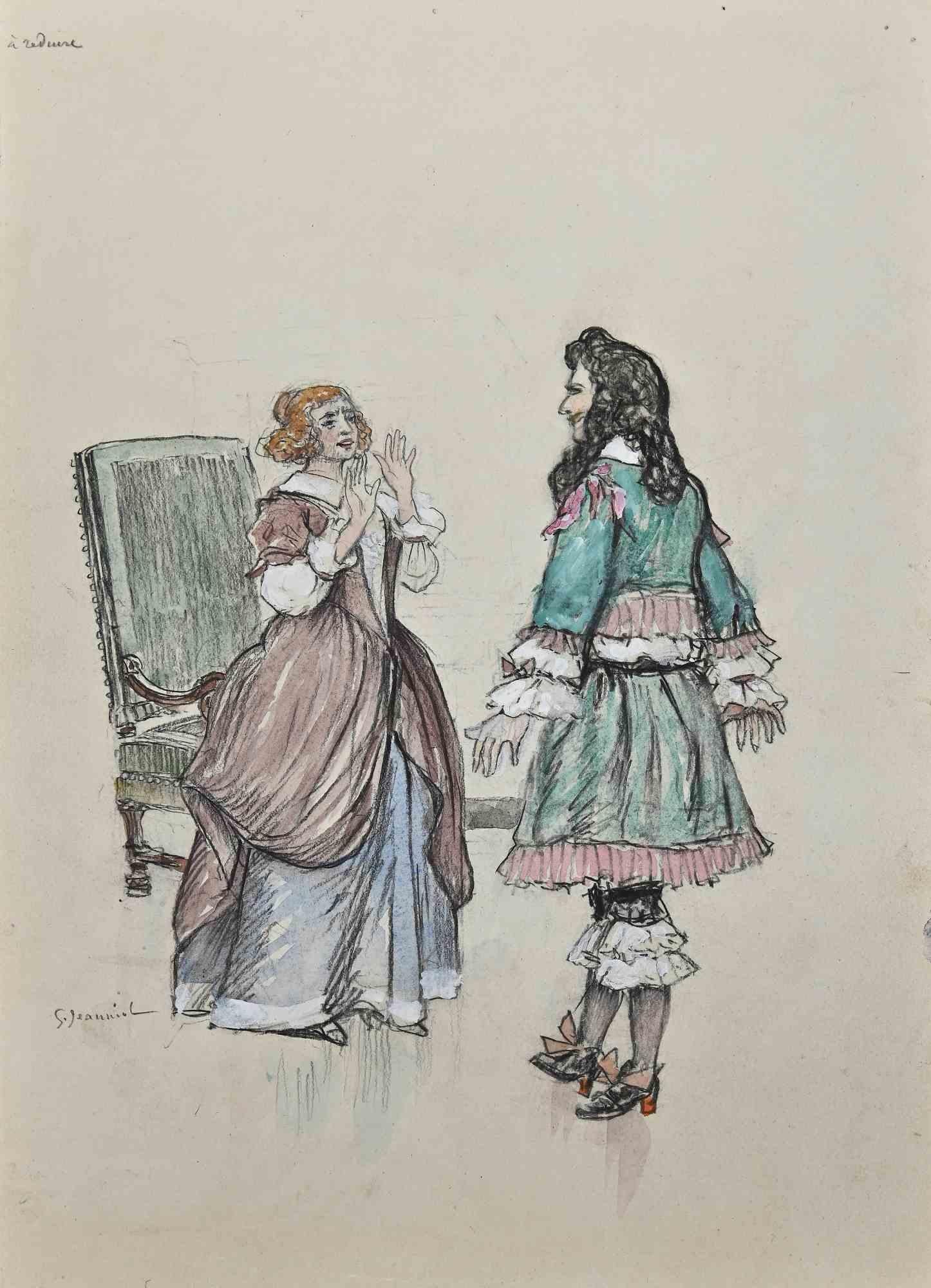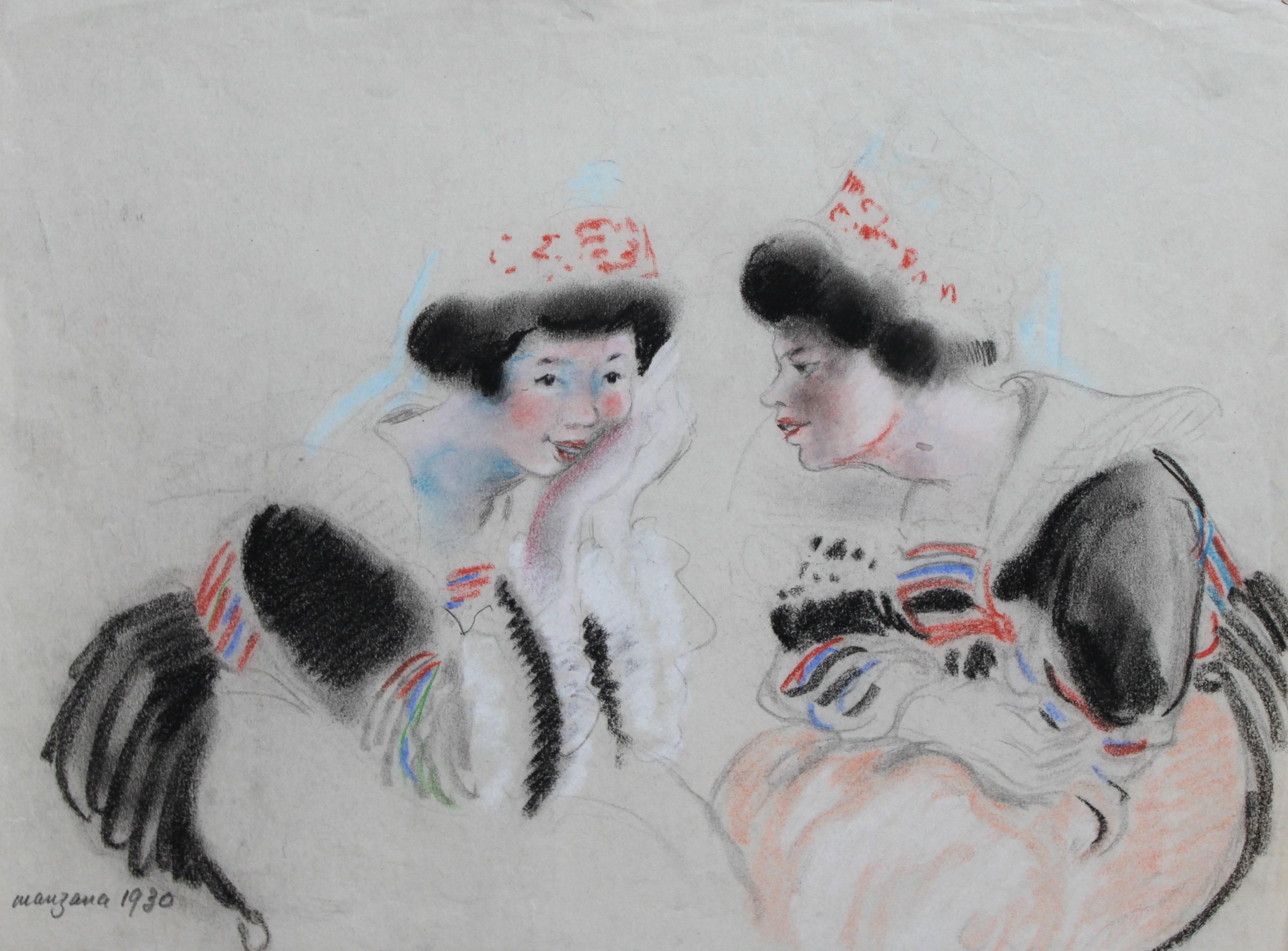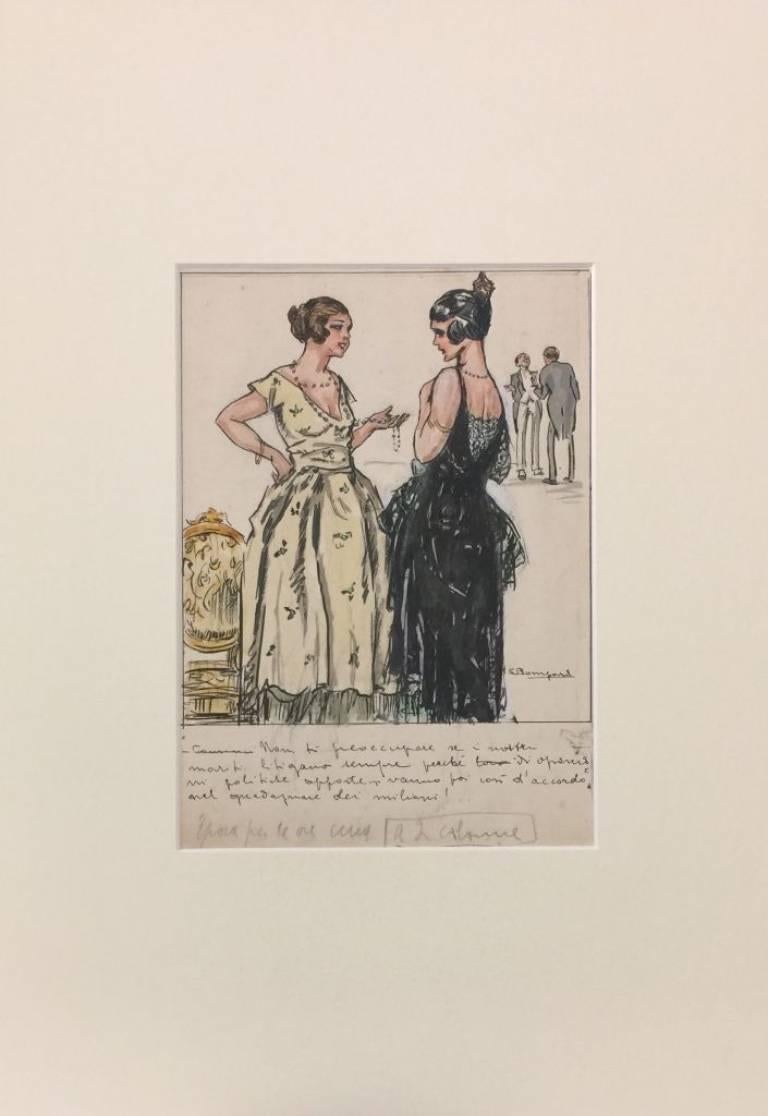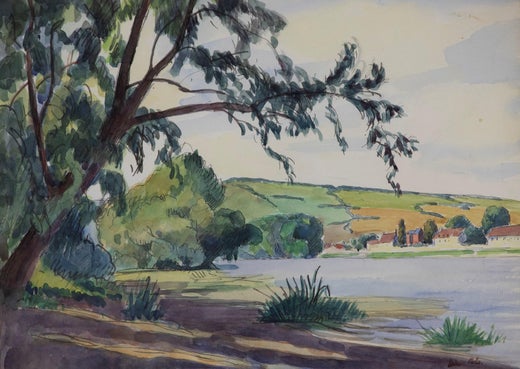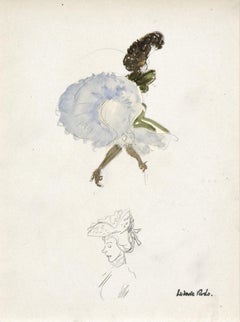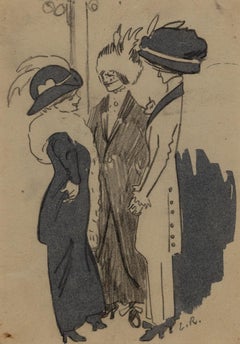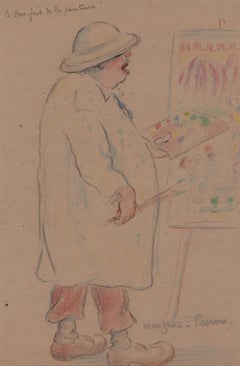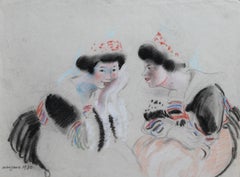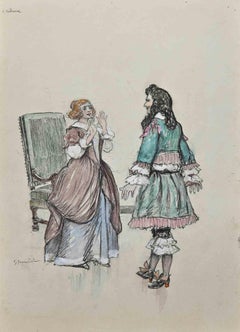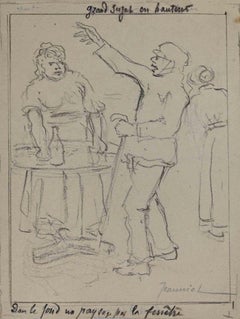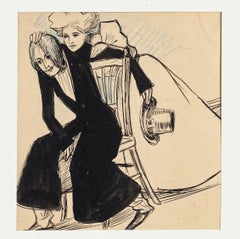Ludovic-Rodo PissarroLes Deux Femmes Élégantes, Watercolour and Pencil on Paper, Drawingcirca 1901
circa 1901
About the Item
- Creator:Ludovic-Rodo Pissarro (1878 - 1952, French)
- Creation Year:circa 1901
- Dimensions:Height: 8.59 in (21.8 cm)Width: 5.79 in (14.7 cm)
- Medium:
- Movement & Style:
- Period:
- Condition:
- Gallery Location:London, GB
- Reference Number:1stDibs: LU261214839122
Ludovic-Rodo Pissarro
Ludovic-Rodolphe Pissarro, born in Paris in 1878, was influential French Impressionist painter Camille Pissarro’s fourth son. Encouraged by his father, he began drawing from nature at an early age. He was familiarly known as “Rodo” and generally signed his works "Ludovic-Rodo,” or early on in his career, "Rodo.”
The impact of Camille’s art and teaching on Rodo was considerable, and his artistic production encompassed a wide range of media, including oil painting, tempera, watercolour, gouache, wood engraving, drawing and lithography. Rodo exhibited regularly at the Salon des Indépendents over a 40-year period.
In 1894, at the age of 16, Rodo published his first wood engravings in the anarchist journal, Le Père Peinard. When Camille left France for the safety of Belgium during the anarchist upheavals of the same year, Rodo joined him there.
Rodo moved into his first studio in Montmartre with his brother Georges in 1898. He found the nightlife of Paris and the habitués of the cafes, theatres, circuses and cabarets of the area compelling subjects for his work. With his younger brother, Paulémile, Rodo met artists such as Kees van Dongen, Maurice de Vlaminck and Raoul Dufy. In 1905, he participated in the first Fauve exhibition at the Salon des Indépendants.
At the outbreak of the War in 1914, Rodo moved to England. Over the next few years, he lived mainly in and around West London. He worked closely with his brother, Lucien, to establish, in 1915, the Monarro Group, formed with the aim of exhibiting work by contemporary artists inspired by Impressionism. Many of the works, produced by Rodo while he was in England, were of major London landmarks. After 1924, when Rodo had already returned to France, he divided his time between Paris and Les Andelys in Normandy. Despite his rich artistic heritage and his achievements as an artist, Rodo is perhaps best remembered for his contribution to art history. For 20 years, he researched and compiled a catalogue of his father’s paintings – a project that was finally published in two volumes in 1939 — and is still considered to be the definitive reference book on Camille’s work. Rodo told Lucien that the compilation of this catalogue was a fascinating task, revealing as it did “the work of the artist, its highs and lows, its progress, as a whole, through acquired experience.”
(Biography provided by Stern Pissarro Gallery)
- ShippingRetrieving quote...Shipping from: London, United Kingdom
- Return Policy
More From This Seller
View AllEarly 1900s Fauvist Figurative Drawings and Watercolors
Paper, Watercolor, Pencil
Early 1900s Post-Impressionist Figurative Drawings and Watercolors
Paper, Watercolor, Pencil
1940s Figurative Drawings and Watercolors
Paper, Color Pencil, Graphite
1930s Post-Impressionist Drawings and Watercolor Paintings
Paper, Pastel
Early 1900s Post-Impressionist Figurative Drawings and Watercolors
Paper, Ink, Watercolor
Early 1900s Post-Impressionist Figurative Drawings and Watercolors
Paper, Ink, Watercolor
You May Also Like
Late 19th Century Modern Drawings and Watercolor Paintings
Pencil, Watercolor
Early 20th Century Post-Impressionist Figurative Drawings and Watercolors
Paper
Early 20th Century Modern Portrait Drawings and Watercolors
Pencil
Early 20th Century Modern Figurative Drawings and Watercolors
Pastel, Ink
20th Century Modern Figurative Drawings and Watercolors
Pencil
1880s Academic Figurative Drawings and Watercolors
Ink, Watercolor
